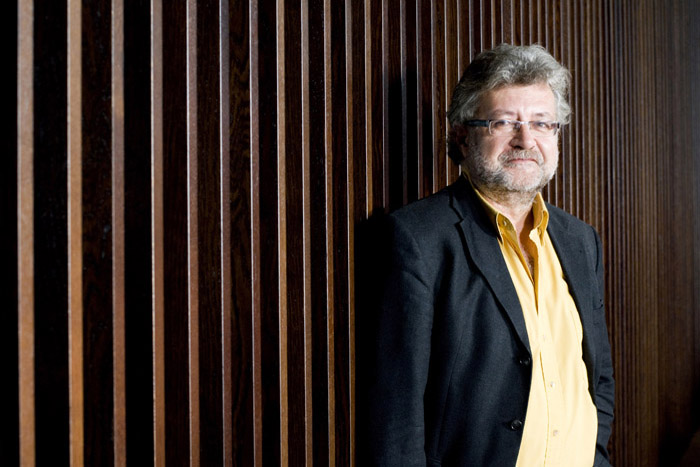Lectures "Quantum Simulators: Special-Purpose Quantum Computers"
I am sorry to write so late, but this is a unique event - the Russian quantum center brings to Moscow leading experts in quantum computers who will talk about the computers they created and their prospects.

One of the main challenges facing quantum physics today is the creation of a quantum computer. Being in a superposition state, a quantum processor can solve the problem for all the initial values in parallel, which means an increase in computer performance by many orders of magnitude and revolutionary changes in the technological structure of the modern world. Experts estimate the terms of application of the first quantum computers up to several tens of years. Can quantum computing give us something today? The answer is yes, but only in special areas.
18:00 - 18:50 “Quantum Simulators: Special-Purpose Quantum Computers,” Maciej Levenstein The
lecture will be devoted to one of the most important specialized quantum computers — quantum simulators — devices that can be used to model solids with already known properties.

Maciej Lewenstein, professor at the Photonics Institute in Barcelona.
He graduated from the University of Warsaw (Poland) in 1978, defended his dissertation at the University of Essen (Germany) in 1983, and then his doctoral dissertation at the Institute of Physics in Warsaw in 1986. Macieu Levenstein's research interests include quantum optics, quantum information, and physics of cold gases, the interaction of laser radiation with matter and statistical physics. Co-author of more than 350 articles and reports, winner of the Hertz Foundation Prize of University of Hamburg (2010), 2008 European Research Council Advanced Grant (2008) and several others.
19:00 - 20:00 “Quantum Optics with Diamonds”

Marko Lonkar, Professor, Department of Applied Science and Engineering, Harvard University.
At the lecture, Marco Loncar will describe the devices and elements for constructing a quantum computer.
Marko Lonkar is a professor at the Department of Applied Science and Engineering at Harvard University. He graduated from the University of Belgrade (Serbia) in 1998 and defended his thesis at California University of Technology in 2003. His research interests include optical nanoresonators, nanoscale optomechanics, diamond nanophotonics and quantum optics, as well as the development of biomedical sensors based on resonators. Professor Loncar is the co-author of more than 70 articles and the author of more than 100 reports, winner of the NSF CAREER Award (2009) and Alfred P. Sloan Fellowship (2010).
Register openu.timepad.ru/event/25910 . Limited number of seats.
Address: Moscow, Polytechnic Museum, New Square 3/4, entrance number 9
Live broadcast: May 18 at 18:00 (Moscow time): www.sk.ru
The video recording of the lecture will be published at: community.sk.ru/opus

One of the main challenges facing quantum physics today is the creation of a quantum computer. Being in a superposition state, a quantum processor can solve the problem for all the initial values in parallel, which means an increase in computer performance by many orders of magnitude and revolutionary changes in the technological structure of the modern world. Experts estimate the terms of application of the first quantum computers up to several tens of years. Can quantum computing give us something today? The answer is yes, but only in special areas.
18:00 - 18:50 “Quantum Simulators: Special-Purpose Quantum Computers,” Maciej Levenstein The
lecture will be devoted to one of the most important specialized quantum computers — quantum simulators — devices that can be used to model solids with already known properties.

Maciej Lewenstein, professor at the Photonics Institute in Barcelona.
He graduated from the University of Warsaw (Poland) in 1978, defended his dissertation at the University of Essen (Germany) in 1983, and then his doctoral dissertation at the Institute of Physics in Warsaw in 1986. Macieu Levenstein's research interests include quantum optics, quantum information, and physics of cold gases, the interaction of laser radiation with matter and statistical physics. Co-author of more than 350 articles and reports, winner of the Hertz Foundation Prize of University of Hamburg (2010), 2008 European Research Council Advanced Grant (2008) and several others.
19:00 - 20:00 “Quantum Optics with Diamonds”
Marko Lonkar, Professor, Department of Applied Science and Engineering, Harvard University.
At the lecture, Marco Loncar will describe the devices and elements for constructing a quantum computer.
Marko Lonkar is a professor at the Department of Applied Science and Engineering at Harvard University. He graduated from the University of Belgrade (Serbia) in 1998 and defended his thesis at California University of Technology in 2003. His research interests include optical nanoresonators, nanoscale optomechanics, diamond nanophotonics and quantum optics, as well as the development of biomedical sensors based on resonators. Professor Loncar is the co-author of more than 70 articles and the author of more than 100 reports, winner of the NSF CAREER Award (2009) and Alfred P. Sloan Fellowship (2010).
Register openu.timepad.ru/event/25910 . Limited number of seats.
Address: Moscow, Polytechnic Museum, New Square 3/4, entrance number 9
Live broadcast: May 18 at 18:00 (Moscow time): www.sk.ru
The video recording of the lecture will be published at: community.sk.ru/opus
